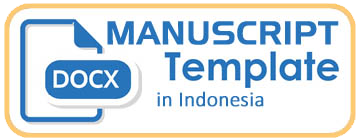PENGEMBANGAN LKPD MENGGUNAKAN MODEL PjBL UNTUK MENUMBUHKAN KARAKTER TANGGUNG JAWAB PADA MATERI VOLUME BAGI SISWA KELAS V SD
Keywords:
LKPD, Project Based Learning Model, Responsibility CharacterAbstract
This study was motivated by the fact that LKPD teaching materials to improve students' sense of responsibility are still rarely used in the learning process. The purpose of this study was to develop LKPD using the project-based learning model for fifth-grade elementary school volume lessons. The research method used was R&D with the ADDIE model. The LKPD product developed was designed to foster students' sense of responsibility through project-based learning activities. The LKPD product validators involved three certified elementary school teachers. The LKPD product trial involved 19 fifth-grade elementary school students. The data collection techniques used were tests, questionnaires, and interviews. Meanwhile, the data analysis techniques used were qualitative and quantitative data analysis. The results of the study are as follows: (1) The development of LKPD using the PjBL model for fifth-grade elementary school volume material was developed through five stages of the ADDIE model: Analyze, Design, Development, Implement, and Evaluate. (2) The quality of LKPD using the PjBL model for fifth-grade elementary school volume material is indicated by an average validation score of 3.82 (very good). The results of the limited pilot test indicate that the LKPD is effective in fostering students' sense of responsibility, with the average score increasing from 2.1 to 3.6, representing a 73.3% increase, and improving learning outcomes with an effectiveness level in the “high” category, with an N-Gain score of 0.72, an average pretest score of 63.6, and an average posttest score of 88.9.
Downloads
References
Ating, F. C., Bistari, Salimi, A., Halidjah, S., & Tampubolon, B. (2023). Pengembangan LKPD Berbasis PJBL Dalam Pembelajaan Matematika Untuk Meningkatkan Sikap Tanggung Jawab Kelas V Sekolah Dasar. FONDATIA: Jurnal Pendidikan Dasar, 200-210.
Fadilah, Rabi'ah, Alim, W. S., Lestari, I. W., Baidawi, A., & Elisanti, A. D. (2021). Pendidikan Karakter. Jawa Timur: CV. Agrapana Media.
Kartika, L., Tandililing, E., & Bistari. (2016). Penerapan Engaged learning Strategy Dalam Menumbuhkembangkan Tanggung Jawab Belajar dan Kemampuan Koneksi Matematis Siswa Sekolah Menengah Atas. Jurnal Pendidikan dan Pembelajaran Khatulistiwa.
Komalasari, M. D., & Pardjono. (2015). Pengembangan LKPD Terintegrasi Nilai Karakter Untuk Mengembangkan Tanggung Jawab, Disiplin, dan Prestasi Belajar Peserta Didik Sekolah Dasar. Jurnak Pendidikan Karakter.
Sugiyono. (2020). Metode Penelitian Kuantitatif, Kualitatif, dan R&D. Bandung: ALFABETA.
Sukarelawan, D. I., Indratno, T. K., & Ayu, S. M. (2024). N-Gain vs Stacking. Yogyakarta: Suryacahya.
Syafitri, R. (2017). Meningkatkan Tanggung Jawab Belajar Melalui Strategi Giving question and Getting Answers Pada Siswa. Jurnal Penelitian dan Pengembangan Pendidikan, 57-63.
Wahyu, R. (2017). Implementasi Model Project Based Learning (PJBL) Ditinjau dari Penerapan Kurikulum 2013. Jurnal Tecnoscienza.
Waruwu, M. (2024). Metode Penelitian dan Pengembangan (R&D): Konsep, Jenis, Tahapan dan Kelebihan. Jurnal Ilmiah Profesi Pendidikan, 1220-1230.









